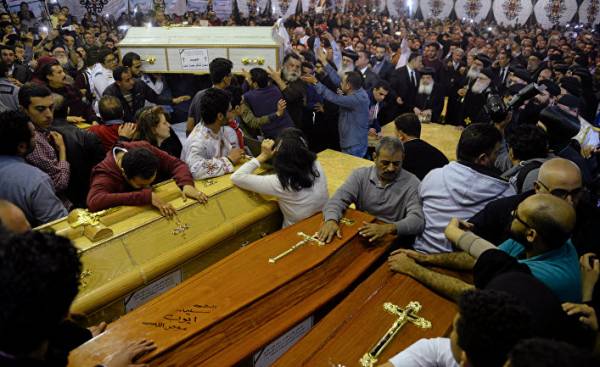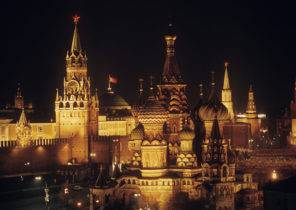
Yesterday, April 9, two Egyptian temples have been two attacks, which killed at least 47 people. The attacks took place after a series of attacks of local Islamists on the minority Coptic Christians. The temple complex Abbasseya in Cairo in December last year became the target of the attack, which killed 25 people. In the period from January-February killed seven Copts from a small impoverished Sinai town of al-Arish. These instances of violence, the responsibility for which, as for yesterday’s terrorist attacks, claimed “Islamic state” (declared a terrorist organization and banned in Russia — approx. ed.), forcing dozens of Christian families to leave their homes and flee from the Peninsula.
Violence of ISIS transformirovalsya, explains Michael Hannah (Michael Hanna), an expert on Egypt Fund Century: previously, he was confined to the Sinai, and his actions were aimed against the state, now it reaches other regions of the country and strikes on the civilian population. Copts make up 10% of the population of 91 million people, dozens of years of Egyptian regimes considered second-class citizens, are only “easy prey”. As in Iraq, the terror of the “Islamic state” strikes at the already shaky balance between the religious communities in the country where cyclical clashes between Muslims and Christians. Last summer some cases had led to increased tension in the South: an old woman-Christian dragged naked through the village, awakening religious hatred and provoking clashes. Christian family and a kindergarten were captured in the region of Minya, unknown shot a nun on the highway from Cairo to Alexandria, a pharmacist from Tanta cut off the head.
The December attack in Cairo has led to increased security measures, at least, it is striking that many temples of the capital, starting from Saturday evening, appear concrete and metal fence. The incident on 9 April, the attacks do raise questions about the level of security that authorities had guaranteed to enter at the beginning of Easter Holy week, when all the churches are filled with parishioners. In December, an angry mob of Christians acted with critical statements to the government, and local and international media have wondered whether losing Egypt’s President Abdel Al-Sisi support among the Coptic population. Egyptian Rais enjoys the support of the Christians, terrified after the 2011 revolution with the electoral success of the “Muslim Brothers”: after his appointment, Al-Sisi was acting not like his forerunners, he took part in a Christmas service in Cairo. In October 2016, met with the head of the Coptic Church Pope Tawadros, the President has ensured that Muslims and Christians are equal before the law in accordance with the Constitution of 2014, kindly received by the Christian community.
In early March, the University-mosque of al-Azhar, one of the most important centers of Sunni Islam, which at the end of the month will be visited by Pope Francis, conducted a conference organized with the support of the President, on the subject of citizenship: Christians are citizens, not a minority, that was a concluding statement. Recently, the constitutional court issued a verdict against the ban that prevented Copts to visit sacred places in Jerusalem. In the summer a law was passed, which the Christians had requested for decades, the construction of churches with the support of the government. Christian activists and politicians criticized, however, the leadership of the Coptic Church, because it agreed to the weak, believed to be a compromise with the government. In Christian community also accusations that the Church bends under the regime. New violence in Christian churches may deprive the government of the support of the Christians, who now feel the aim of the terrorist attacks, assess their security as insufficient, but “the population, even if it is disappointed, not willing to take risks in an atmosphere of chaos, many believe that now is not the time to look for alternatives,” explains Hannah.







